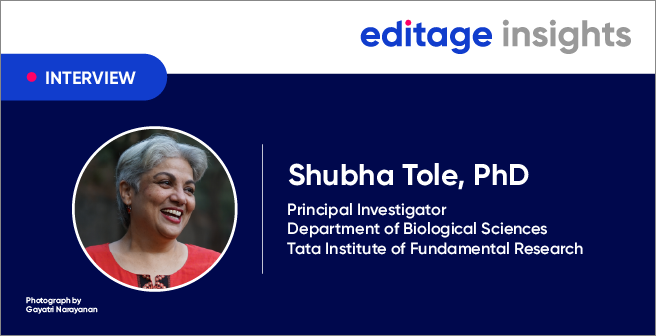PhD viva voce: It’s finally done!

It’s now three days after my viva and I’ve almost managed to mentally process the outcome. I passed, with no corrections.
If you’re not familiar with how the doctoral examination process works, at least here in the UK, here’s a quick summary: An internal and external examiner are appointed; experienced academics who ideally work in the field in which your research is located, one from your own institution and a second from another university. They are invited to examine your thesis, but they are not paid and there is no obligation. You submit your thesis and a copy is sent to each of them to review. On the cover of the thesis, it is common to find a statement declaring that ‘This thesis is in partial fulfilment of the requirements for the degree of Doctor of Philosophy’, or something similar. The other main ‘requirement’ in the UK, and some though not all HE systems, is an oral exam or viva voce. A date for the viva is set, often between four and six weeks after the submission of the thesis; that was the case for me. I outlined in previous posts some of the preparation I undertook, but in short it involved re-reading my thesis in different ways, using the internet to source typical (general) questions that are often asked, and preparing my responses to them.
So, on to the viva day itself. The exam was scheduled for 14:15 on the afternoon of 13th December in a meeting room of Sheffield Hallam University, Institute of Education. I got up around 6:30 as normal, had breakfast, and briefly skimmed my Twitter timeline. I then prepped four dips and a salsa for our running club Christmas bash which was in the evening (we all contribute a little something to the meal). Spending time with friends would be a good way to close the day, whatever the outcome. I then caught the bus to the uni, read a couple of sections of my thesis during the one-hour journey, and when I arrived, I did the usual admin-email-type stuff. Around midday, I met my supervisor for a much-needed pep talk. I really, really hate formal interview-style scenarios; I feel I’m not confident, don’t process information rapidly, and am far from fluent and coherent. Yes, I was nervous, but not a complete gibbering wreck, and was just desperately keen to do my thesis justice. I have to say how good a job my supervisor did in assuaging my fears and offering suggestions which addressed my concerns. In the remaining time I had to myself, I once more reviewed my responses to what I thought might be typical opening questions, then walked across to the other building with the thesis, folder of notes, tablet with gallery of visualisations, notebook, pen and a spare pen in hand.
At 14:20, I was invited into the exam room by the exam convenor (another academic whose role was to ensure the exam was conducted according to the University’s code of conduct), where I met my examiners. I knew both; one I have worked with on other research projects, and the other I met at a conference – both for whom I have the greatest respect. One of my supervisors was also present, but out of my line of sight and obliged to take no part in the exam. I shook hands with my examiners, thanked them for reading my thesis and agreeing to examine me, then after being introduced to the format by the convenor, things were quickly under way.
The examiners both said how interesting they found my thesis (that’s common and intended to settle the candidate), but the first proper question was way off what I expected. I’d anticipated what most advice suggests will be a gentle introduction – ‘tell us about your thesis’ or ‘what inspired you to undertake this study?’ But there was none of that. Pointing out that I’d proposed a rather different methodological approach, they were keen to get stuck into that straight away. Rather than feeling unsettled, I actually felt somewhat relieved to get straight into the nitty-gritty. After all, flanography was always going to be a big deal and I knew we’d be talking at length about it, so as they say, ‘bring it on.’
I didn’t make an accurate record of the questions which followed and was more keen to pay attention and just capture enough to help my answers stay on track, so I can’t provide any insights that might help those of you looking for typical questions. What I can say though is that there were no ‘typical’ questions in my viva. Every single one was specifically directed to an aspect of my study, and the main areas we covered were, in no particular order: my approach; my conceptualisations (spent quite a bit of time on that, especially whether it departed from the ‘messy’ thread I’d advocated throughout the rest of the thesis); how I articulated the literatures and how socio-material thinking informed that; the third Gathering and whether addressing the ‘personal’ aspects could be rationalised within a socio-material approach; my ‘travelling companions’— assemblage, multiplicity and fluidity, and why those in particular; the rationale behind ‘publishing’ interviews, tweets, etc.; and the path through which my analysis led to the Gatherings being presented in the way I did. After drawing the proceedings gently to a close, the convenor asked my supervisor and me to withdraw whilst the panel discussed the outcome. I have to say how friendly, sensitive, and respectful my examiners were, and how genuinely interested they appeared to be in what I had to say. The time just flew.
I didn’t keep my eye on the time at all, nor even checked a clock when I came out, but I guess it was about an hour and three quarters. After about fifteen more minutes waiting, and joined also by one of my other doctoral supervisors, we were invited back in for the verdict. It is rare for a thesis to fail, provided the candidate and supervisors have done their jobs, but there are a number of possible outcomes. If the thesis is strong and the candidate successfully addresses any queries or concerns the examiners have, then they may award a pass with no corrections. If there are some small issues which need addressing, then the award could be pass, subject to minor amendments the examiners identify. These can usually be dealt with fairly quickly. Then the thesis is resubmitted for the internal examiner to approve and the award to be signed off. Sometimes a thesis might pass subject to more significant amendments, like a chapter to be rewritten or for structural issues to be addressed. This time the candidate is given a few months in which to complete those corrections before resubmission. Although I was happy with the thesis I’d produced and felt I’d done reasonably well in the viva (much better than I’d expected!), being awarded ‘pass with no corrections’ was much more than I could have hoped for.
I vaguely remember the examiners being rather complimentary about the thesis and the way that I’d reassured them about some sections on which they sought clarification. Had they asked me to correct those things by being clearer, I would have had no problem, but as they remarked a couple of times, it was my thesis and my choice about how to express my ideas (although I assume it had to be sufficiently robust to stand alone without those clarifications if necessary). But I think my mind began to either swirl in an unfocused way, or having the job done, go into standby. I have only rather fuzzy memories of the time after the outcome was declared.
Having thanked the panel and exchanged pleasantries, I and my supervisors withdrew to another room, where we exchanged our appreciation of each other’s efforts. I know how I valued their guidance during my studies and in writing the thesis, but I was gratified too by how they seemed to have appreciated my approach to doctoral research, the effort I’d put into the thesis, and how well I’d acquitted myself in the viva. No one was more surprised than me!
I’m not sure of the protocol regarding naming examiners, so I’ll refrain from doing that, but I am grateful for their inquisitive, generous, and thoughtful approach in the exam. I would also like to publicly thank my supervisory team for all their guidance and support (and humour!) over the past three years, and in getting me over the finishing line.
Professor Mark Boylan, Professor Guy Merchant, and Dr. Emily Perry.
One small benefit from passing with no corrections is that I’m at liberty to assume the title ‘Doctor’ straight away, at least informally. The award has first to be confirmed by the University Vice-chancellor—a formality provided there has been no misconduct—then, if I wish, I can get my driving license, bank card, etc. updated to reflect my new title. And I think I do wish it.
Dr. Ian Guest (@IaninSheffield) is a Research Assistant, Sheffield Hallam University, UK. This story was published on December 16, 2018, on Dr. Guest’s blog Marginal Notes (available here), and has been republished here with his permission.




